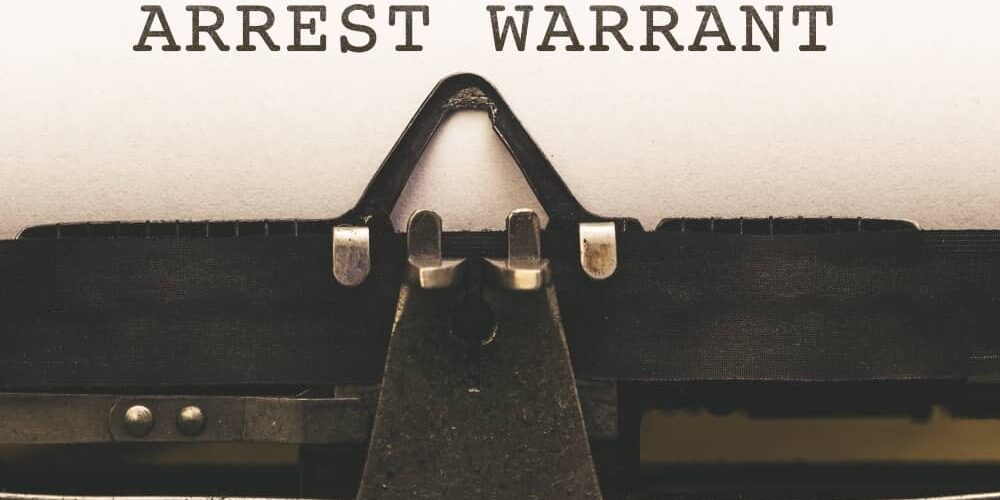There are several common myths and misconceptions regarding arrest warrants. Misunderstanding the facts regarding arrest warrants can lead to unnecessary anxiety and, in some cases, misguided actions based on false beliefs. Additionally, you may struggle to find facts as statutes can vary according to the state or territory.
One of the first things you must be clear about is the definition of an arrest warrant in Western Australia.
In Western Australia, an arrest warrant is a mandate issued by a Magistrate or Judge permitting the police to arrest a specific individual. Arrest warrants are made under oath and are required to identify the person to be taken into custody. The warrant needs to identify the person to be arrested. Additionally, it may not be used as the right to apprehend any other person. Police in Western Australia do have the authority to make an arrest with or without a warrant.
Even though you may understand an arrest warrant, there are still many facets when you have no information or receive incorrect information. The following are myths and misunderstandings about arrest warrants, along with the correct information.
1. Arrest Warrants are Only Issued for Violent Offenders
Fact: The Court can issue arrest warrants for a variety of offences. These can range from minor to severe. Some examples of reasons for arrest warrants may include:
- If a person is charged with a criminal offence but cannot be located
- If a person fails to attend court as required by law
- If a person breached a condition of bail or an apprehended violence order
- If a person is convicted and sentenced to a term of imprisonment but cannot be located
- If a person violated a condition of a sentence, such as one contained in a community correction order or intensive correction order
- If a person has breached a condition of parole
2. To See if I Have a Warrant, I Should Contact a National Registry of Outstanding Arrest Warrants
Fact: No national, state, or territory registry exists in Australia. If you have acted illegally and believe a warrant exists, you can find out by contacting the local police force. Alternatively, you can have your legal representative enquire on your behalf.
3. I Can Avoid Arrest By Fleeing or Absconding
Fact: Moving to another state or territory will not help you avoid an arrest. The local police have the authority to arrest you in any part of Australia. Additionally, many foreign governments have extradition treaties with Australia. If an extradition order is granted, the government of the country you are in can arrest and send you back to Australia.
4. If I Ignore an Arrest Warrant, It Will Eventually Expire
Fact: Ignoring an arrest warrant is one of the worst things you can do. This type of action can impact bail and sentencing after you are found and brought into custody. A warrant can also restrict your ability to travel.
5. Police Must Catch Me Committing Criminal Activity to Enforce My Arrest Warrant
Fact: When you have an arrest warrant in your name, police officers have the authority to take you into custody. You do not need to be caught committing another crime. However, this often is how those with arrest warrants are caught.
6. Arrest Warrants Are Often Issued Without Evidence
Fact: A judge or Magistrate carefully reviews arrest warrants, and there must be a prerequisite condition to be met before a warrant can be issued. They also can be based on probable cause or ensuring a legal foundation. There is nothing arbitrary about arrest warrants.
7. An Arrest Warrant Means I Will be Arrested Straight Away
Fact: Many arrest warrants do lead to arrest as soon as the named person is found. However, there are some situations, like gathering more evidence for a case, where the alleged perpetrator is not taken into custody immediately. In these cases, police will use surveillance to track the person whose name is on the arrest warrant.
8. Arrest and Search Warrants Are the Same
Fact: Arrest and search warrants are different. When police officers have a search warrant, they may enter your premises or other designated locations to search for evidence. An arrest warrant gives police the authority to apprehend or arrest the person whose name is on the warrant.
9. You Have No Rights If There is an Active Arrest Warrant in Your Name
Fact: Your rights as an accused remain intact whether your name is on an active arrest warrant or not. For example, you still have the right to remain silent, as well as the right to legal representation. You also have the right to an interpreter. You should not be subjected to poor treatment. Please be aware that any conversations you have with a police officer, whether recorded or not, can become evidence at trial.
10. If an Arrest Warrant is Issued, I am Going to Jail
Fact: Whether there is an arrest warrant for you or not, you are still presumed to be innocent until proven guilty of the charge. However, about the application of bail, the onus is different.
If you discover there is an arrest warrant for your apprehension, you should contact the legal experts at WN Legal. Our team of experts understands the legal system and the methods necessary to get the best possible outcome for you.
You may also be eligible for a free 30-minute consultation with one of our lawyers, provided another legal firm does not already represent you, you do not qualify for legal aid, and you have the current criminal or restraining order proceedings on foot.
Do not wait for the legal problem you have to go away on its own. Reach out to Perth’s premier legal team at WN Legal.
**Please Note**
The material presented in this post is for informational use only. It does not constitute binding legal advice and should not be a replacement for a consultation with a legal professional








